2018 K-12 Global Education Symposium

October 17-18, 2018
The Friday Conference Center
1.5 CEU offered
Our K-12 global education symposium is held each October at the William and Ida Friday Center in Chapel Hill, NC. This day-and-a-half program explores significant global issues, offers best practices and resources in global education and provides educators an opportunity to develop a global action plan for their classroom, school or system. It’s an immersive professional development experience that will increase educators’ knowledge of global issues and global competency skills and promote global education by integrating these issues in the classroom or school culture. This program is designed to meet the global education needs of K-12 classroom teachers of all disciplines, administrators, media coordinators, other school professionals, central office and all educators seeking the Global Educator Digital Badge. New! Earn Digital Learning Competency CEUs!
$175 per person; $600 per team of four
Online registration is closed; day-of registration will be at the Friday Conference Center at 8:00 a.m. on Wednesday, October 17, 2018.
Schedule | Speakers | Special Feature | Concurrent Sessions | Exhibitors | Program Material | Lodging & Directions
Schedule
View a pdf of the program here.
| WEDNESDAY, OCTOBER 17 | |
| 8:00 a.m. | Registration and Continental Breakfast |
| 8:30 a.m. | Welcome |
| 8:45 a.m. | Plenary I: The Future of Work
Arvind Malhotra, H. Allen Andrew Professor of Entrepreneurial Education, Kenan-Flagler Business School, UNC-Chapel Hill
|
| 9:45 a.m. | Plenary II: Rising Waters: Climate Change and Global Connections for Ports, Port Communities and People
Rachel Willis, Professor, Department of American Studies, UNC-Chapel Hill
|
| 10:45 a.m. | Break and Exhibits |
| 11:00 a.m. | Concurrent Sessions I |
| 12:00 p.m. | Lunch |
| 1:00 p.m. | Concurrent Sessions II |
| 2:00 p.m. | Move to Next Session |
| 2:10 p.m. | Concurrent Sessions III |
| 3:10 p.m. | Break and Move to Action Planning or Team Meetings |
| 3:20 p.m. | Action Planning or Team Meetings |
| 3:50 p.m. | Transition to Auditorium |
| 4:00 p.m. | Plenary III: The Destruction of Syria
Charles Kurzman, Professor, Department of Sociology and Co-Director, Carolina Center for the Study of the Middle East and Muslim Civilizations, UNC-Chapel Hill
|
| 5:00 p.m. | Adjourn |
| THURSDAY, OCTOBER 18 | |
| 8:00 a.m. | Continental Breakfast |
| 8:30 a.m. | Welcome
Freebird McKinney, North Carolina Teacher of the Year
|
| 8:40 a.m. | Plenary IV: FILMS BYKIDS: Climate Change Through the Eyes of a Child
Including film screening of My Beautiful Nicaragua
Holly Carter, Founder and Executive Director, BYkids
|
| 9:40 a.m. | Plenary V: Putin v. the People
Graeme Robertson, Professor, Department of Political Science and Director, The Center for Slavic, Eurasian and East European Studies, UNC-Chapel Hill
|
| 10:40 a.m. | Break and Exhibits |
| 10:55 a.m. | Plenary VI: This Is My Home Now Film and Panel Discussion
Mariah Dunn Kramer, Instructor, Film Studies, UNC Wilmington
Dean MacLeod, Assistant Director of Alumni Engagement, UNC Greensboro
Sun Bujri, Statewide Base Building Organizer, Southeast Asian Coalition
Mai Butrang, Nursing Student
|
| 12:00 p.m. | Adjourn |
Speakers


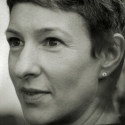

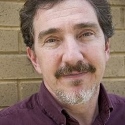
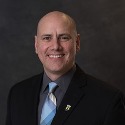
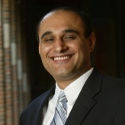

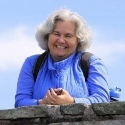
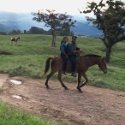

Special Feature on CTE from the Asia Society
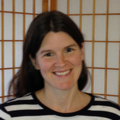
Concurrent Sessions
Note: A number of concurrent sessions are aligned with the NC Digital Learning Competencies. Educators can receive 1.5 CEUs for the entire program, with up to 1.0 CEUs applicable towards DLCs.
| GRADES K-12 |
| Applying Global Competence in Your Classroom: Perspectives from an EL Teacher
Anne Tomalin, EL/ESL Teacher, Chapel Hill High School, Chapel Hill-Carrboro City Schools
English Learner (aka ESL) specialists have a front-row seat to observe how cultural differences affect both teaching and learning in content classrooms. Teachers and administrators can be puzzled and frustrated by the behavior of EL students, while ELs can be daunted and confused by unfamiliar classroom expectations and instructional practices. This session will illuminate some of the “unwritten rules” of our schools, examine examples of how cultural differences manifest in the classroom and identify some interpersonal and instructional strategies that are effective with English Learners and other students from diverse cultural backgrounds.
|
| Career Readiness in a Global Economy DLC aligned!
Heather Singmaster, Director, Center for Global Education and Global Cities Education Network, Asia Society
To be career ready in today’s interconnected economy, students will need 21st century workforce skills that include global competence. CTE is critical to ensuring all students have these skills, with many schools and districts working to upgrade their CTE programs to meet the needs of the global economy. This interactive session will define the global workforce readiness skills your students need; examine examples of current globally-focused CTE programs at the school and district level; and explore free, online professional development tools for administrators and CTE educators to assist in integrating global content into their schools and classrooms.
|
| Going “Beyond the Single Story” with Carolina Navigators
Elizabeth Bucrek, Program Manager and Instructor, Carolina Navigators, The Center for Global Initiatives, UNC-Chapel Hill
In this interactive session, you will learn how Carolina Navigators makes it easy for you to go “beyond the single stories” of countries and cultures in your classroom. An innovative service-learning program, Navigators works with UNC-Chapel Hill students with international expertise to create FREE global education resources for K-14 educators and students across the state. Participants will go on a virtual and hands-on tour of available global education resources and participate in a model activity.
|
| Making Connections: Digital Learning Competencies and Global Education DLC aligned!
Kathy Parker, School Library Media Consultant, NC Department of Public Instruction
In 2016, the State Board of Education approved digital learning competencies for teachers and administrators (DLCs). What does this mean for us as educators? How do the DLCs connect with global education? Join this session to find out! Participants will benefit from bringing a fully charged computing device as this session will be digitally interactive.
|
| Preparing Globally Competent Students: Creating a Space for Courageous Dialogues
Dana Griffin, Associate Professor, School of Education, UNC-Chapel Hill
Bringing the world into the classroom through a critical lens is an innovative teaching strategy as it deviates from traditional classroom practice. As global educators, we must understand and act on issues of global and local significance. As global educators, we must also teach students how to understand and act on these issues. Often times, our students are numb to the events that take place in the world around us and lack the empathy necessary to understand and act, or we as educators may be unprepared on how to address these issues in a classroom environment. In this session, we collectively gather as global educators to discuss the importance of courageous conversations and share strategies for engaging students.
|
| Teaching About the Middle East through the Arts
Emma Harver, Program/Outreach Coordinator, Duke-UNC Consortium for Middle East Studies
Art helps us grow and evolve in our understanding of ourselves, each other and the world we live in. This interactive session will enhance understanding of the Middle East through a cultural arts perspective, explore how the arts can increase global competence and include lessons and resources for teaching about the Middle East in the K-12 classroom.
|
| Sudan to Charlotte and Back Again: One Lost Boy’s Journey to Promoting Education in South Sudan
James “Lubo” Mijak, South Sudan Country Director, Mothering Across Continents
Mary Beth Moyer, Program Coordinator, Mothering Across Continents
Former Lost Boy of Sudan James “Lubo” Mijak will share his story of fleeing his village in Sudan and becoming a US citizen. He will explain how his journey led him to become the Raising South Sudan country director for Mothering Across Continents. This session will detail his journey, which has inspired hundreds of individuals, schools, churches and civic organizations and has led to support for education in South Sudan, the world’s newest and most fragile country.
|
| #TechTools for Global Engagement DLC aligned!
Scott Morrison, Assistant Professor of Education, Elon University
In this interactive session, participants will be introduced to #techtools and opportunities for global engagement in the classroom, including Twitter, Global Read Aloud, Newsela, #MysterySkype, Padlet, InsertLearning, Peardeck and Flipgrid. Participants are encouraged to bring devices to this session.
|
| Using Art and Artifacts to Understand the World DLC aligned!
Susan Jinks, CTE Teacher, New Century Middle School, Moore County Schools
Kimberly Oakley, AIG Teacher, New Century Middle School, Moore County Schools
Come take a field trip around the world using Google Arts and Culture. We will travel across continents without leaving our classroom. No passports or permission slips are needed. Our stops will focus on artifacts, architecture, photographs, paintings and even some street art. We will explore historical moments, delve deep into the visuals of specific decades and look at the political viewpoints of artists. Along the way we will learn how to collect art to make it easy to share with students, so that we may provide students with experiences in the art and culture of our world. As a teacher, you will learn how to navigate Google Arts and Culture, create a curated exhibit based on a discussion question or theme and walk away with a crowdsourced list of ideas for immediate classroom use.
|
| GRADES 6-12 |
| Critical Teaching in Complicated School and Community Contexts
Brian Gibbs, Professor, School of Education, UNC-Chapel Hill
This session will engage participants in an interactive discussion about critical and justice-oriented teaching: What it is, the multiple ways it can be done in schools, and its historical and theoretical roots. Participants will also examine recent investigations into the teaching of war to children of soldiers and the teaching of lynching in communities where lynchings occurred.
|
| Digital Literacy Should Be Disruptive: Transformative, Entry-Level Approaches to Digital Research and Writing DLC aligned!
Daniel Anderson, Professor, UNC-Chapel Hill; Director, Digital Innovation Lab, UNC-Chapel Hill
There has long been a tension between seeing digital developments in education as evolutionary or revolutionary. No doubt, many new activities helpfully extend familiar approaches in the classroom. But as we deploy digital tools to improve existing models of teaching we may miss out on opportunities to more fundamentally shift learning dynamics. This presentation looks at ways that digital approaches with low-threshold learning curves not only productively add value to existing assignments but also promote changes that create transformative possibilities in the classroom.
|
| Edtech Addressing Global Goals: Inquiry-Driven, Online and Free DLC aligned!
Molly Farrow, Curriculum Specialist, SAS Curriculum Pathways
Michael Robbins, Humanities Teacher, Athens Drive High School, Wake County Public Schools
When we ask students to learn using authentic resources, we transform them into global thinkers. Rather than passively receiving information from a teacher or textbook, students engage in inquiry – making sense of the stories, events and ideas of the past and present through document analysis and aligning content within its geographic context. Experience how well-designed technology empowers students to explore global issues using case-study inquiry with open-ended questions, identifying evidence from images and text, collaborating with peers and creating content-rich annotated maps. The standards-aligned online activities showcased in this session promote critical thinking and support the themes outlined in the Goals of Sustainable Development outlined by the United Nations. Participants will explore the document analyzer tool to read selections of primary-source document passages from varying points of view. Participants will also experience the ease of tools that provide clarity for students reading background content on global topics.
|
| Exploring Immigration and the Asian Indian Community in North Carolina with the Film Remarkable Journey
Paul Bonnici, Special Projects Coordinator, Carolina K-12, UNC-Chapel Hill
Steve Rao, Member, Morrisville Town Council
Remarkable Journey: Founding the Asian Indian Community in North Carolina is an endearing documentary that offers both a global and a state perspective on Asian Indians, offering an excellent way to engage students in topics such as immigration, Asian Indian history, Indian cultural diversity and Asian Indian contributions to North Carolina. As part of this session, participants will view excerpts from the film and engage in discussion with Councilman Steve Rao, who is featured in the film and became first Asian American elected official in North Carolina in 2011. Participants will also learn how to access a free copy of the film and accompanying teaching guide by Carolina K-12.
|
| “Fake” News and Teaching News Literacy DLC aligned!
Stephanie Willen Brown, Director of Park Library, School of Media and Journalism, UNC-Chapel Hill
What is “fake” news? How do you know what you’re reading online is accurate? Do you want to improve your students’ ability to evaluate what they see on the Internet? UNC librarian Stephanie Brown has taught multiple news literacy sessions for high school teachers, senior citizens and librarians – and she wants to share what she’s learned. This presentation will include effective and politically neutral ideas you can use to teach students how to verify the information they find online. Stephanie will demonstrate techniques to teach news literacy with hands-on activities and will show how to fact-check stories using NCWiseOwl and Google. Stephanie has developed a checklist that helps students consider the credibility of sources, and she will share the checklist along with suggestions for its use in the classroom. Finally, Stephanie will share some great websites with lesson plans for teaching news literacy in middle and high school. All material will be available online for you to use and modify to suit your students and classroom situation.
|
| Global Ed in Math? We Don’t Have To Do That, Do We?
Stephanie Morgan, Math Teacher, Pisgah High School, Haywood County Schools
It’s in our evaluation instrument, we’ve all seen it: Teachers promote global awareness and its relevance to subjects they teach. But how do we do that? Is it enough to just pull a few world problems and call it a day? Not really. We have to go deeper, making the mathematics applicable, meaningful and global. It isn’t the easiest task, but it’s absolutely worth it. Check out this session for ideas on how to incorporate global content into your math classroom!
|
| Historical and Modern Anti-Semitism: Teaching Tolerance by Unpacking Holocaust Denial and Distortion
Karen Klaich, Co-Director of Teacher Workshops for the NC Council on the Holocaust
This session will review the history of anti-Semitism and how it manifested itself as a catalyst for the Holocaust. Participants will also reflect upon historical anti-Semitic terms and images, as well as those used by neo-Nazis and white supremacists, increasing our understanding of how these emblems are used to continue Holocaust denial and distortion in our world today. Finally, we will share some critical thinking and tolerance activities that will help our students navigate through these troubled times.
|
| Why Teach About the Holocaust in 2018?
Karen Klaich, Co-Director of Teacher Workshops for the NC Council on the Holocaust
This session will ask participants to reflect on basic Holocaust history – understanding that it was a watershed event in the history of the world – while also examining the choices that people, groups and governments made during WWII. We will review the ideas of how democratic institutions can be easily pulled apart through apathy and neglect. Best practice activities will include ways to help our students understand the ramifications of racism, prejudice and stereotyping and why we continue to need to teach the lessons of the Holocaust in the twenty-first century.
|
| CENTRAL OFFICE AND SCHOOL ADMINISTRATORS |
| You Can’t Be What You Can’t See: Creating and Sustaining a Globally Competent Culture of Learning
Chris Scott, Assistant Professor of Education Policy, Organization and Leadership, UNC-Chapel Hill
The demanding and often complicated challenge of school and district leadership often positions leaders to combat the “one more thing to do” attitude when implementing school improvement. The presenter will prompt leaders to reflect on aspects of instructional leadership and school improvement – including systems and processes management, human and financial resource alignment and professional development commitments – to assess and evaluate the extent to which they promote globally aware school cultures. By considering initiatives such as Social Emotional Learning, Problem-and Project-Based Learning and Restorative Practices, school and district leaders can identify strategies to shape school culture to increase students’ global competency.
|
Exhibitors
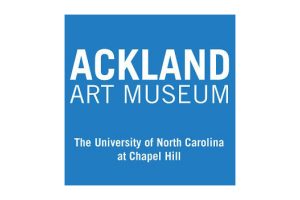 |
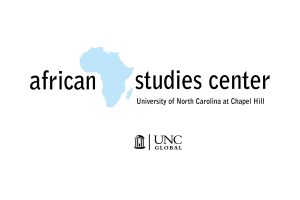 |
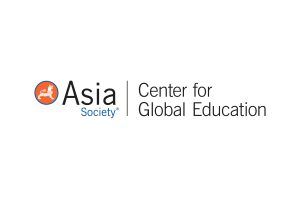 |
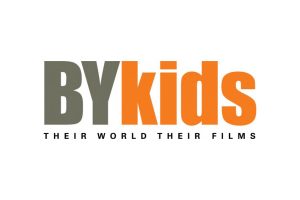 |
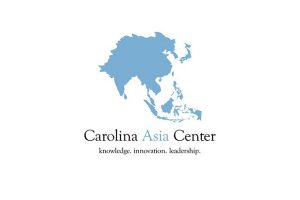 |
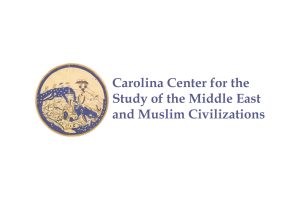 |
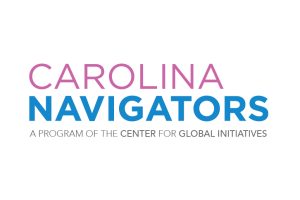 |
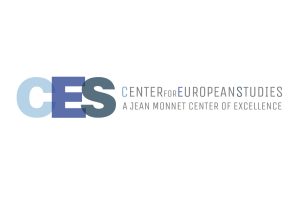 |
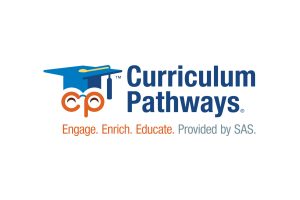 |
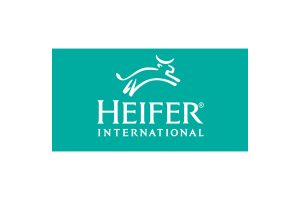 |
 |
 |
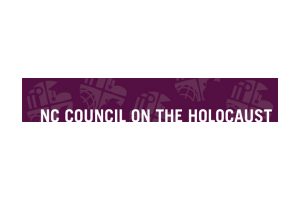 |
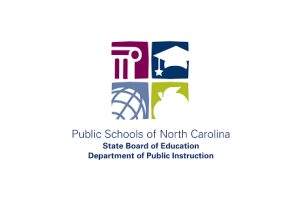 |
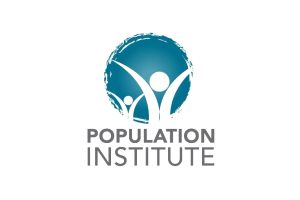 |
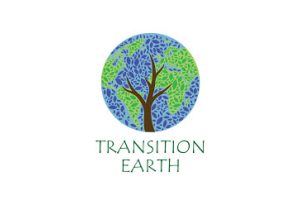 |
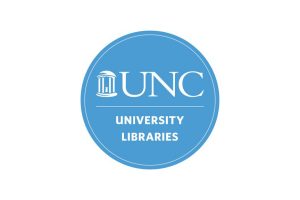 |
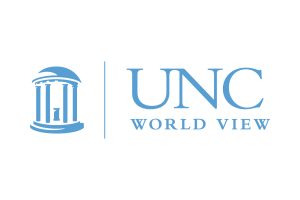 |
Program Material
Required for CEU credit: To maximize your experience during the symposium and to earn 1.5 Continuing Education Units (CEU) you will need to read and complete the preparatory materials, attend the full symposium and submit a required assignment and completed study guide AFTER the program. The study guide has questions to be answered before attending the October program and afterwards.
- October 3, 2018: The required study guide prompts you to assess your own “news literacy” and consider the relationship between global competence and media literacy. This week’s suggested reading explores what it means to “teach for global competence.” Anthony Jackson, who leads the Center for Global Education at the Asia Society, stresses that “Fostering students’ global competence is an accessible, practical possibility that is not beyond the reach of the average teacher.” The Center for Global education and the OECD (Organization for Economic Co-operation and Development) identify the following as key aspects of global competence. Globally competent youth:
- Investigate the world beyond their immediate environment by examining issues of local, global or cultural significance
- Recognize, understand and appreciate the perspectives and world views of others
- Communicate ideas effectively with diverse audiences by engaging in open, appropriate and effective interactions across cultures
- Take action for collective well-being and sustainable development both locally and globally.
To further educate yourself or refresh your knowledge of the fundamentals of globally competent teaching practices, read pages 7-16 of Teaching for Global Competence in a Rapidly Changing World. Published by Asia Society’s Center for Global Education and OECD, this pdf guide can be accessed here.
- October 9, 2018: Explore what’s trending around the world. Global Voices aims to build understanding across borders by curating, verifying and translating news and stories from around the world. The site publishes articles in English and 40 additional global languages.
Lodging & Directions
Holiday Inn Express
Courtyard by Marriott
Hampton Inn & Suites Carrboro
